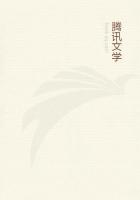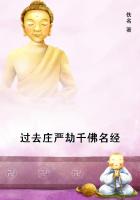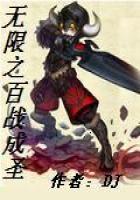Then the fox barked and the raven cawed his signal to the wandering tribes, and they all rejoiced and said: "Now they are both dying or dead, and we shall have no more trouble!" But the sun appeared, and a warm wind melted the snow-banks, so that the land was full of water. The young man and his Teacher made a birch-bark canoe, which floated upon the surface of the flood, while of the animals there were saved only a few, who had found a foothold upon the highest peaks.
The youth had now passed triumphantly through the various ordeals of his manhood. One day his Elder Brother spoke to him and said: "You have now conquered the animal people, and withstood the force of the elements. You have subdued the earth to your will, and still you are alone! It is time to go forth and find a woman whom you can love, and by whose help you may reproduce your kind."
"But how am I to do this?" replied the first man, who was only an inexperienced boy. "I am here alone, as you say, and I know not where to find a woman or a mate!"
"Go forth and seek her," replied the Great Teacher; and forthwith the youth set out on his wanderings in search of a wife.
He had no idea how to make love, so that the first courtship was done by the pretty and coquettish maidens of the Bird, Beaver, and Bear tribes. There are some touching and whimsical love stories which the rich imagination of the Indian has woven into this old legend.
It is said, for example, that at his first camp he had built for himself a lodge of green boughs in the midst of the forest, and that there his reverie was interrupted by a voice from the wilderness--a voice that was irresistibly and profoundly sweet. In some mysterious way, the soul of the young man was touched as it had never been before, for this call of exquisite tenderness and allurement was the voice of the eternal woman!
Presently a charming little girl stood timidly at the door of his pine-bough wigwam. She was modestly dressed in gray, with a touch of jet about her pretty face, and she carried a basket of wild cherries which she shyly offered to the young man. So the rover was subdued, and love turned loose upon the world to upbuild and to destroy! When at last she left him, he peeped through the door after her, but saw only a robin, with head turned archly to one side, fluttering away among the trees.
His next camp was beside a clear, running stream, where a plump and industrious maid was busily at work chopping wood. He fell promptly in love with her also, and for some time they lived together in her cosy house by the waterside. After their boy was born, the wanderer wished very much to go back to his Elder Brother and to show him his wife and child. But the beaver-woman refused to go, so at last he went alone for a short visit. When he returned, there was only a trickle of water beside the broken dam, the beautiful home was left desolate, and wife and child were gone forever!
The deserted husband sat alone upon the bank, sleepless and faint with grief, until he was consoled by a comely young woman in glossy black, who took compassion upon his distress and soothed him with food and loving attentions. This was the bear-woman, from whom again he was afterward separated by some mishap. The story goes that he had children by each of his many wives, some of whom resembled their father, and these became the ancestors of the human race, while those who bore the characteristics of their mother returned to her clan. It is also said that such as were abnormal or monstrous in form were forbidden to reproduce their kind, and all love and mating between man and the animal creation was from that time forth strictly prohibited. There are some curious traditions of young men and maidens who transgressed this law unknowingly, being seduced and deceived by a magnificent buck deer, perhaps, or a graceful doe, and whose fall was punished with death.
The animal totems so general among the tribes were said to have descended to them from their great-grandmother's clan, and the legend was often quoted in support of our close friendship with the animal people. I have sometimes wondered why the scientific doctrine of man's descent has not in the same way apparently increased the white man's respect for these our humbler kin.
Of the many later heroes or Hiawathas who appear in this voluminous unwritten book of ours, each introduced an epoch in the long story of man and his environment. There is, for example, the Avenger of the Innocent, who sprang from a clot of blood; the ragged little boy who won fame and a wife by shooting the Red Eagle of fateful omen; and the Star Boy, who was the off-spring of a mortal maiden and a Star.
It was this last who fought for man against his strongest enemies, such as Wazeeyah, the Cold or North-Wind. There was a desperate battle between these two, in which first one had the advantage and then the other, until both were exhausted and declared a truce. While he rested, Star Boy continued to fan himself with his great fan of eagle feathers, and the snow melted so fast that North-Wind was forced to arrange a treaty of peace, by which he was only to control one half the year. So it was that the orderly march of the seasons was established, and every year Star Boy with his fan of eagle feathers sets in motion the warm winds that usher in the spring.

